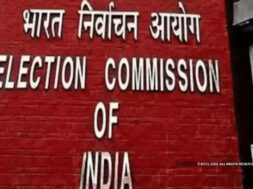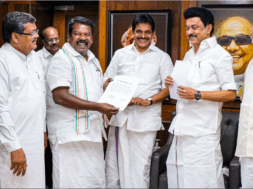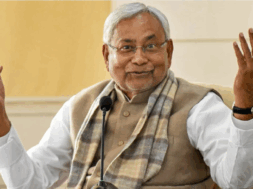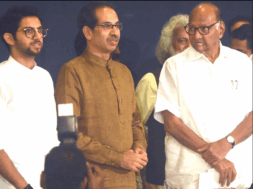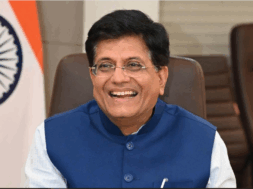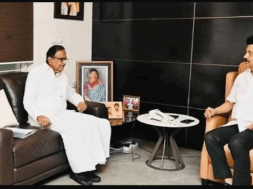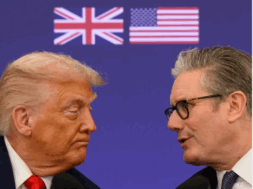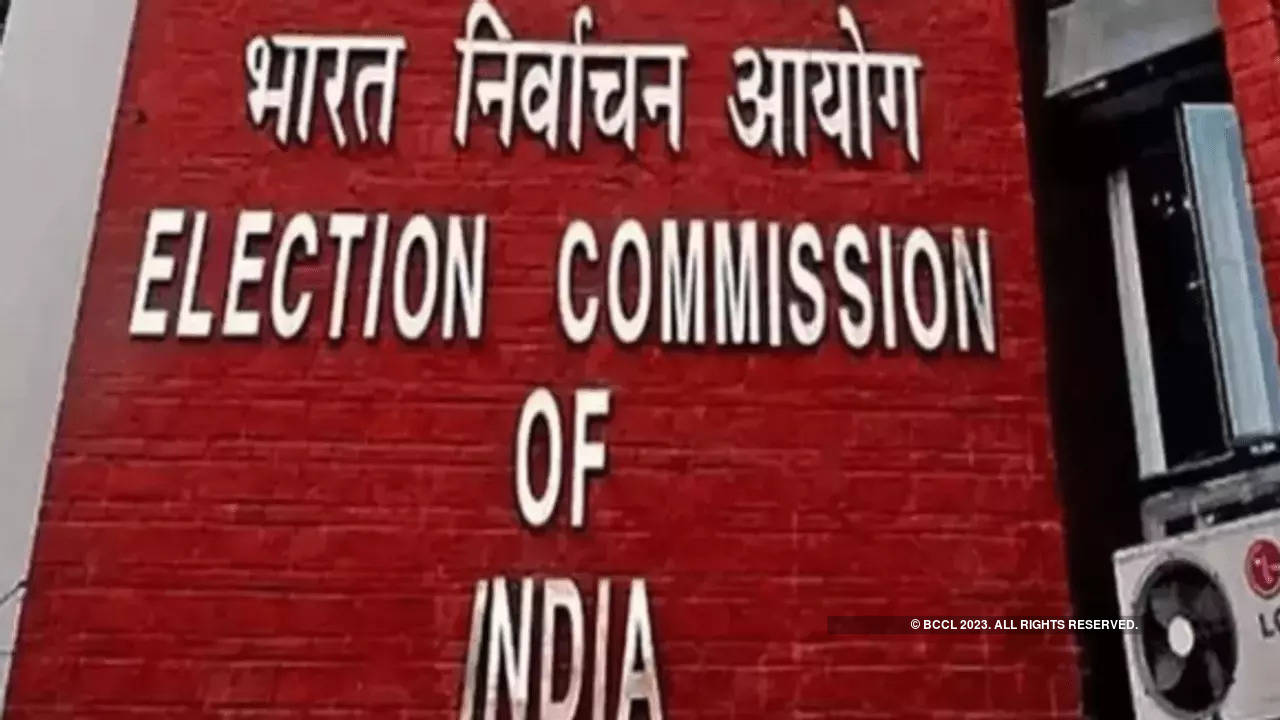
Manas Dasgupta
NEW DELHI, Aug 10: In yet another confrontational course with the judiciary, the central government has proposed to drop the Chief Justice of India from the committee to recommend names to the President for appointments in the Election Commission.
The opposition promptly called the move a shameless act by the Narendra Modi government to openly rig the 2024 Parliamentary elections by appointing its “yes men” in the Election Commission which the framers of the constitution had viewed as an independent authority.
As per “The Chief Election Commissioner and Other Election Commissioners (Appointment, Conditions of Services and Term of Office) Bill, 2023,” tabled in the Rajya Sabha on Thursday, the top Election Commission officers shall be appointed by the President on the recommendation of a panel comprising the Prime Minister, Leader of Opposition in Lok Sabha and a Union Cabinet Minister nominated by the Prime Minister.
The move apparently was to overturn the effect of the Supreme Court verdict on the appointment of the Chief Election Commissioner (CEC) and Election Commissioners (ECs). On March 2, a five-judge constitution bench of the Supreme Court had unanimously ruled that a high-powered committee consisting of the Prime Minister, Leader of Opposition in the Lok Sabha and the Chief Justice of India must pick the CEC and ECs.
The judgement by a bench led by Justice KM Joseph had come in a 2015 public interest litigation, challenging the constitutional validity of the practice of the Centre-appointed members of the Election Commission. In 2018, a two-judge bench of the SC referred the case to a larger bench since it required a close examination of Article 324 of the Constitution, which deals with the role of a Chief Election Commissioner.
Article 324(2) reads: “The Election Commission shall consist of the Chief Election Commissioner and such number of other Election Commissioners, if any, as the President may from time-to-time fix and the appointment of the Chief Election Commissioner and other Election Commissioners shall, subject to the provisions of any law made in that behalf by Parliament, be made by the President.” However, since there was no law made by Parliament as prescribed by the Constitution, the Court stepped in to fill the “constitutional vacuum.”
Since the judgment said this arrangement would continue till the parliament came out with a law, the Modi government has moved the bill to take upon itself the responsibility of selecting the CEC and the ECs.
The Court had gone through the debates of the Constituent Assembly to conclude that the Founding Fathers “did not intend the executive exclusively calling the shots in the matter of appointments to the Election Commission.”
The Bill now seeks to address this vacuum and set up a legislative process to make appointments to the EC.
Currently, the Law Minister suggests a pool of suitable candidates to the Prime Minister for consideration. The President makes the appointment on the advice of the PM.
As per the Bill, a Search Committee headed by the Cabinet Secretary and comprising two other members, not below the rank of Secretary to the government, having knowledge and experience in matters relating to elections, shall prepare a panel of five persons who can be considered for appointment.
Then, as per the Bill, a Selection Committee consisting of the Prime Minister, the Leader of Opposition in the Lok Sabha, and a Union Cabinet Minister to be nominated by the Prime Minister will appoint the CEC and other ECs.
In this case, the arrangement prescribed by the Supreme Court was specifically because the Court noted that there was a “legislative vacuum.” Filling that vacuum is well within the purview of the Parliament. However, the idea of an independent body that conducts elections permeates through the judgement. The Court repeatedly stated that to be the objective of the framers of the Constitution.
Interestingly, the Delhi Special Police Establishment Act, also brought after a similar Supreme Court ruling in 2014, had retained the Chief Justice of India in the selection committee to appoint a CBI Director.
The fresh Bill sets up another confrontation between the Supreme Court and the Centre. From judges’ appointments to controversial laws such as Delhi services Act, the Centre and the Supreme Court have been locked in a tussle over several issues. The government and the Supreme Court have also differed in their positions on issues such as the basic structure doctrine; simply put, it means the Constitution has a basic structure that cannot be changed by parliament.
The Trinamool Congress spokesperson Saket Gokhale called it is an attempt to rig the general election in 2024 as the BJP was afraid of the united I.N.D.I.A. alliance. “Shocking. BJP is rigging the 2024 election openly. Modi government has again brazenly trampled upon an SC judgment and is making the Election Commission its own bunch of stooges. In the (EC appointment) Bill the Chief Justice has been replaced by a Union Minister in the selection committee to appoint the Chief Election Commissioner and the two Election Commissioners. The Supreme Court in its judgment had clearly noted that the Committee should be (A) the Chief Justice of India, (B) the PM and (C) the Leader of the Opposition.
“In the Bill, the Modi government has replaced the CJI with a union minister. Basically now, Modi and one minister will appoint the entire Election Commission. This is a clear step towards rigging the 2024 elections after fear has been struck into BJP’s heart by the united INDIA alliance,” Gokhale tweeted.
Echoing him, TMC leader Sushmita Dev said it is yet another attempt to control an institution which must be independent. “The prime minister will appoint a union cabinet minister to replace the CJI as a member of the selection committee to recommend a chief election commissioner. The leader of the opposition will be a member (of the selection panel) but is bound to be outnumbered. This is yet another way to control an institution which must be independent.” she tweeted.
